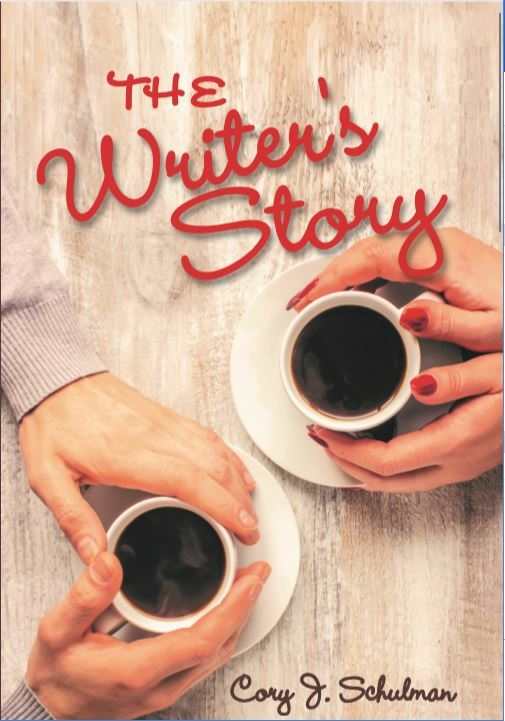The Writer's Story
The Writer’s Story is a twisting literary novel about a flawed writer who comes to question the stories that he tells himself about death and love.
In Cory J. Schulman’s novel The Writer’s Story, a writer works through his craft by imagining relationships with a woman—and to death.
Bic, a middle-aged technical writer, wishes that he could write fiction for a living, instead of penning government manuals. He regards all experiences as creative fodder, though. So he decides to test his vivid notion of an ideal woman character out by participating in Washington, DC’s dating scene.
Bic meets Marisa, a rabbi and a psychologist, whom he fast determines is his soulmate. Although they disagree on almost every topic that they discuss–including religion, mental illness, and murder—they match each other’s intensity, which even the baristas take note of. They begin a three-month period of dating, after which Bic faces drastic changes in his life following a tragic death.
In egotistical fashion, Bic doesn’t mourn, but rather sets about defending himself to the authorities, who accuse him of murder. His personality becomes even more extreme than it was before, threatening to overwhelm the story. This is prevented when the book shifts its focus to concentrate on Bic’s creator, Schulman. Schulman is also a disaffected technical writer. He is dealing with a death himself. He uses his story to garner the fame that he desires among his peers.
A literary exploration of the craft’s integral position in a writer’s life, the book balances its twinned heroes well. Bic dominates the opening coffee shop conversation with Marisa with his extreme views, which sometimes disturb her. In contrast, Schulman’s perspective is less abrasive. He thinks about attending his twenty-year high school reunion, and his memories are vibrant and entertaining. But he, like Bic, is obsessed with writing, too.
The novel is heavy on conversations, with short bursts of action interrupting its musing pace. The three-month span of Bic and Marisa’s relationship is rushed through, though, as is Schulman’s shift from government job to a whole new lifestyle. When Schulman develops his own relationship with Marisa, it’s an intriguing development—if also one that ripples throughout the book’s the writer-creation foil. Still, his rapport with her is more convincing that hers with Bic; she is more expressive in this iteration of their relationship, too.
Deaths take precedence over romance in both halves of the book. The death occupying Schulman’s life is more gruesome than the one that Bic encounters, leading to questions about the place of a craft in a person’s real life. Schulman himself changes when he realizes what kills off his characters, resulting in a life shift—if also a shift in how he may be perceived by his audience (his new outlook is not complimentary). The book’s tone becomes too cynical and sardonic after this, resulting in a dismal, abrupt ending that is at stylistic odds with the story that precedes it.
The Writer’s Story is a self-referential literary novel about a writer who tells himself stories about the natures of writing, death, and love.
Reviewed by
Mari Carlson
Disclosure: This article is not an endorsement, but a review. The publisher of this book provided free copies of the book and paid a small fee to have their book reviewed by a professional reviewer. Foreword Reviews and Clarion Reviews make no guarantee that the publisher will receive a positive review. Foreword Magazine, Inc. is disclosing this in accordance with the Federal Trade Commission’s 16 CFR, Part 255.

